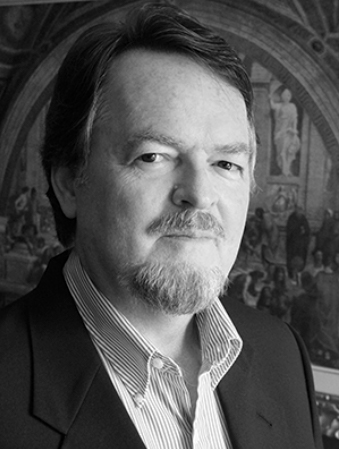God predestines and calls sinners unto life in Christ.
by | Posted February 18th at 6:16pm
Man’s willful bondage to sin precipitated his need for God’s grace. We will examine the theological doctrine of effectual calling and regeneration and the difference between Monergism and Synergism.
The Westminster Confession, chapter 10, puts it very well:
10.1. All those whom God hath predestinated unto life, and those only, he is pleased in his appointed and accepted time effectually to call [Rom. 8:30; 11:7; Eph. 1:10, 11], by his Word and Spirit [2 Thess. 2:13–14; 2 Cor. 3:3, 6], out of that state of sin and death in which they are by nature, to grace and salvation by Jesus Christ [Rom. 8:2; Eph. 2:1–5; 2 Tim. 1:9–10]: enlightening their minds spiritually and savingly to understand the things of God [Acts 26:18; 1 Cor. 2:10; 12; Eph. 1:17–18], taking away their heart of stone, and giving unto them an heart of flesh [Ezek. 36:26]; renewing their wills, and, by his almighty power determining them to that which is good [Ezek. 11:19; Phil. 2:13; Deut. 20:6; Ezek. 36:27], and effectually drawing them to Jesus Christ [Eph. 1:19; John 6:44–45]; yet so as they come most freely, being made willing by his grace [Song of Songs 1:4; Ps. 110:3; John 6:37; Rom. 6:16–18].
10.2. This effectual call is of God’s free and special grace alone, not from anything at all foreseen in man [2 Tim. 1:9; Titus 3:4–5; Eph. 2:4–5, 8–9; Rom. 9:11], who is altogether passive therein, until, being quickened and renewed by the Holy Spirit [1 Cor. 2:14; Rom. 8:7; Eph. 2:5], he is thereby enabled to answer this call, and to embrace the grace offered and conveyed in it [John 6:37; Ezek. 36:27; John 5:25].
What have we learned from these portions of the Westminster?
First, only those whom God has predestined for life are effectually, truly called and regenerated, contrary to the Arminian view which only sees God’s calling as universal going out to all people on earth. Second, God effectually calls and regenerates spiritually dead sinners to new life by his Word and Spirit and by the grace of his Son Jesus Christ. Here Westminster draws from the biblical metaphors by stating that the Spirit enlightens the mind to understand (Eph. 1:17–18), takes away the heart of stone and replaces it with a heart of flesh [as with feeling, heart-felt respondent to God’s love and the Grace offered the chosen] (Ezek. 36:26), renews the will, and effectually draws the sinner to Jesus Christ (John 6:44–45). Yet, though the Spirit’s drawing is effectual, nevertheless, man comes most freely, “being made willing by his grace.” The will, therefore, is renewed and made willing to believe.1
Moreover, notice the order in which Westminster places God’s grace in reference to man’s faith. In 10.2 Westminster states that the effectual call is purely of God’s grace so that man is absolutely passive. It is only when the sinner has been “quickened and renewed by the Holy Spirit, he is thereby enabled to answer this call, and to embrace the grace offered and conveyed in it.” In other words, man’s answer to the call only comes after the Spirit has “quickened and renewed” and not before. 2
Westminster’s understanding of grace—which was restated by John Owen and Thomas Goodwin’s Savoy Declaration (1658) and the Second London Confession (1677, 1689) of the Particular Baptists—once again demonstrates, as was the case with Augustine, Calvin, and Dort, that it is God’s grace which must precede any activity (faith included) on the part of the dead sinner. 3
Until God effectually calls and regenerates the sinner, no faith will be present. To reverse this order would be to exalt man’s will over God’s grace. One of the main reasons the Puritans in England detested Arminianism. In other words, it “inclines men to pride” by allowing “man’s participation in the work of his salvation.” 4
Arminianism also referred to as Wesleyanism, means that man’s will via his own volitionary will, activates his own faith in Christ by his own acceptance of the Bible’s teaching, via his reasoning faculties, and firms up the process of Salvation in cooperation with God. This opposes the above presentation of the Westminster’s scriptural proof that God alone calls and then activates man’s acceptance via His Spirit to acquiesce to His call to come to Christ.
E. Brooks Holifield…states, “The defining mark of Reformed theology was its regard for the glory of God, which entailed a pronounced insistence on divine sovereignty.” 2
Calvinists have defined and defended Monergism [meaning saved by God’s intervening Grace alone] as a necessary ingredient to the sovereignty of divine grace which alone can preserve God’s glory. What then is the implication for evangelicals today? Michael Horton answers that Arminian and Wesleyan Synergism can no longer be an option for Protestants committed to the Reformation. 3
Synergism means ‘working together’, while monergism means “one work”. Synergists believe that two forces are required to bring about the saving of a soul – the Holy Spirit and the will of man. If a person resists the Holy Spirit, then synergists believe there will be no ‘working together’ to achieve that person’s salvation, which is a convolution of scriptural truth.
ESV Scriptural Proofs on Predestined Election for Contemplation
1 Commentary excerpts: Matthew Barrett, Salvation by Grace: The Case for Effectual Calling and Regeneration, 1st ed. (Phillipsburg, NJ: P&R Publishing, 2013), 33–36.; and The Westminster Confession
2 Ibid
3 Ibid
4 Ibid

Article posted by Glen R. Jackman, founder of GraceProclaimed.org
Glen has optimized his eldership role to teach the full scope of the New Covenant of Jesus Christ without
boundaries.
You can read his testimony.